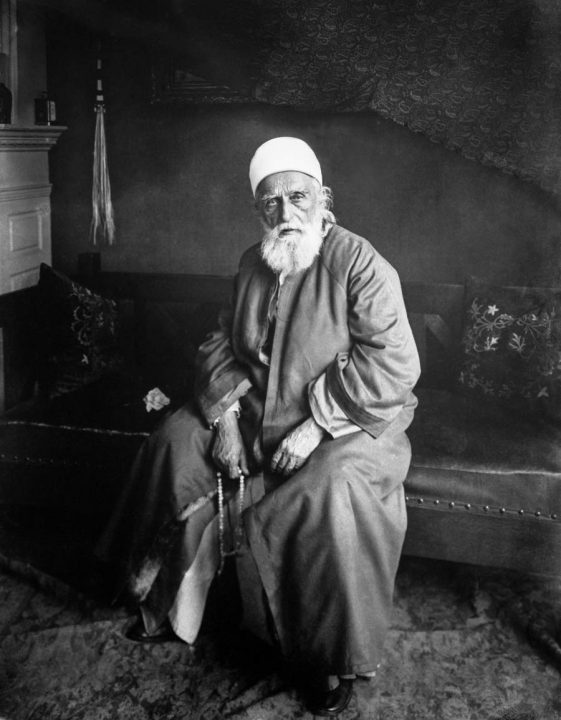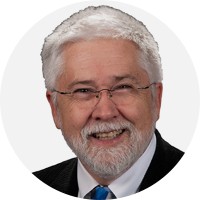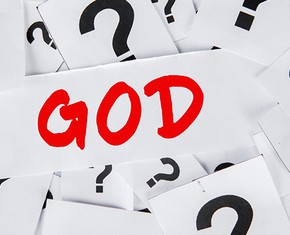The views expressed in our content reflect individual perspectives and do not represent the authoritative views of the Baha'i Faith.
We all know that contemporary Western culture has largely rejected religion, despite the fact that when not perverted or hollow, religion builds societies and sustains individuals.
Of course, religious belief is sometimes wrong and inspires wrong action, usually because of faulty interpretation and/or misplaced zeal. With time, however, false beliefs tend to fade and lose their power to enable action, and mistakes are generally recognized and corrected.
Now, however, I must tell you that religion is much more than just guiding moral precepts and beautiful ethereal yearnings.
While the previous essays in this series discussed the role of true religion in social construction and maintenance, much of the power of religion happens at the individual and mystical level.
I’ve personally experienced this power. As I got closer to graduate school, my spiritual education took a sudden unexpected turn, and I began to become aware of much greater forces in religion.
Of course, everyone’s path is different, and the religious experiences of one may seem like nonsense to another, and that is natural. But because religion can cause profound individual effects, any discussion of religion that ignores them is incomplete. In these days when the light of religion seems to have dimmed in so many lands, I offer my own story as a small example of religion’s awe-inspiring power.
“One group began to stand out for me – the Baha’is”
In college I began investigating religions in earnest. I was not really looking to join a religion; I just wanted to understand them, to have more knowledge about the massive impact religion has had on humanity. I investigated everything from charismatic Christianity to small mystical cults with odd names that no longer exist. I read Ouspensky, Gurdjieff and Krishnamurti. I attended the Koray Adventure, went to Hare Krishna gatherings, read books on Buddhism, hung out at Quaker House, participated in Christian laying on of hands, went to Christian monasteries and visited different churches.
Gradually, however, one group began to stand out for me – the Baha’is. They have a story unmatched in drama and intensity in modern times. The Baha’i Faith has a massive scripture of unparalleled beauty and soaring intellect, a timely progressive message, spiritual and social teachings that make rational sense, leaders with shining character, unrivalled global diversity, and members suffused with simple goodness. As their distinctiveness became clear to me, I became a regular at Baha’i meetings.
Eventually, I crossed a threshold, a point where I knew that a moral weight was upon me to respond to their claims – and I decided to become a Baha’i. Never a joiner, I joined.
This unique worldwide Baha’i community then became the matrix for my continued spiritual development and also for the development of my intellectual understanding of God’s plan. Its exceptional members also became my friends, guides and mentors.
When I decided to become a Baha’i, rather extraordinary things began happening. At the very beginning of my search, as I read from the Baha’i writings at night, I often felt my room inhabited by a being who “watched” as it were from a corner of the room. No, I was not doing drugs, neither prescribed nor recreational, nor was I expecting or seeking a visitation. The being I sensed was majestic, radiant, large, powerful, and immanent – much like the large angels we see in famous paintings. I could not make out his features (I assume it was a he), only an ethereal presence. But he was there, I felt, and filled the room with what seemed a heavenly sanctity.
I recall being troubled at first by this new experience and, while I didn’t feel threatened, I thought the experience best to ignore – but it returned many times over the coming nights and, as it felt holy and radiant, I learned to not be afraid and enjoy the presence. Was all this my imagination? Perhaps – there’s no way to prove otherwise. I have, however, no desire to invent or relay miraculous tales. I’m only sharing what seemed to me a very real presence, and given the nature of scripture, I cannot rule out the possibility that there may be beings, angels as it were, who can, to some degree, make their presence known among us. Maybe that is what I experienced – who knows?
Other remarkable events followed. After a year of dedicated study, I went to a Baha’i school and met an elderly man, Dr. Stanwood Cobb. He was 93 and the keynote speaker for the nighttime session. After his talk several people crowded around him, and I spoke with him, too. At one point in the conversation he said directly to me “You’re a very creative person, but you get depressed a lot, don’t you?”
I remember being somewhat at a loss for words, and being a bit embarrassed, but I recall saying: “I don’t know about the creative part, but I guess you can say I struggle a bit with depression.”
That was an understatement. I was having a very difficult time in life at that point. As you already know if you’ve been reading this series of essays, my dad, caught up in extramarital affairs, had abandoned our family, and my mom periodically suffered severe mental breakdowns and had to be hospitalized for months every few years. Further, the dizzying events of the late 1960s and early 1970s, and my sensitive nature, all conspired to ensure that by this time, in 1974, I felt as though I was surrounded most of the time by a thick cloud. I required three therapy sessions a week to fight off depression and avoid suicidal ideation. So, Dr. Cobb’s comment truly surprised me – especially as I knew my depression was not generally visible to anyone, much less to someone I had just met and to whom I’d only spoken a few words.
Dr. Cobb then drew me near, pulled my hand to his chest and said: “You know, I used to get depressed a lot too.” Then he told me a story from the days he spent in the presence of Abdu’l-Baha – the master exemplar of the Baha’i Faith: “One day I was in my room trying to sleep in the afternoon —as depressed people often do. Abdu’l-Baha came unannounced into my room, walked over to my bed, grabbed my hand, held it to his chest for what seemed awhile, and then threw it back at me, laughed loudly, and said in English (Dr. Cobb did not speak Persian or Arabic): ‘There you won’t be depressed anymore.’” Dr. Cobb smiled and then said: “And, you know, I haven’t been since.”

Now that, I thought, was a very sweet and curious story. But I didn’t see how it had anything to do with me, until about a week passed and I noticed that I had not been depressed. Then another week passed and I seemed to be getting happier and more confident all the time. Then another week passed and I not only found that I didn’t need therapy, but that I could clearly see how one of the therapists that I was seeing was making mistakes. In the next week, I began giving active and better assistance than the therapist to those in group therapy with me.
About this time, I began to reflect back to the evening when I had met Dr. Cobb and gave him my hand. I then recalled the twinkling in his eyes, and it suddenly became clear to me that he, or actually Abdu’l-Baha, had cured me of a very long, very deep depression. For seven years thereafter, I had no trace of depression – not an instant. Since then, depression appears fleetingly during times of great stress, but never has it been prolonged more than a few hours and episodes are usually years apart. What I was given that night in 1974 was an unexpected, monumental and transformative magical gift that profoundly changed my life. Religion, I concluded, has the power to alter and heal our inner lives.
















Comments
Sign in or create an account
Continue with Googleor